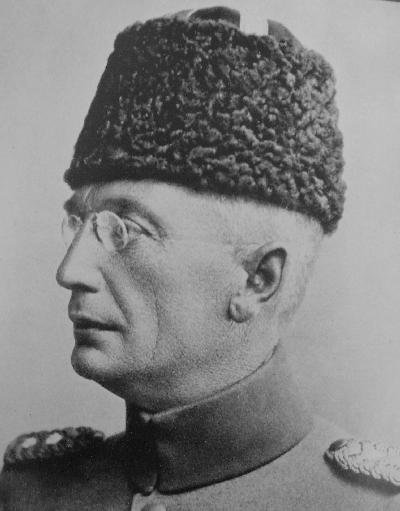Topic: Gm - German Items
Bir el Abd
Sinai, 9 August 1916
Friedrich Freiherr Kress von Kressenstein Account

The German General charged with the defence of Beersheba was General Friedrich Freiherr Kress von Kressenstein, commonly called Kress. He wrote his book Mit den Tèurken zum Suezkanal [With the Turks to the Suez Canal] in 1938.
Kressenstein, Friedrich Freiherr Kress von, Mit den Tèurken zum Suezkanal, 1938.
The next day [8 August] our centre and right wing were engaged in a short but very violent artillery duel, wherein again the Austro-Hungarian Batteries excelled with their accurate firing performance. On the left wing, the situation for Major Dohlmann was at times very critical. The rapid moving Smith’s Column bypassed Dohlmann so that by the afternoon, he was facing a front from the east. I sent him the order to return to Hod um Vayhelhilm when darkness fell. To assist Dohlmann in his task, I sent him the battalion commanded by Major Marr. The rest of the 1st Expeditionary Force took over the night in the line of Bir el Abd – Hod um Vayhelhilm. On the morning of 9 August five brigades of the enemy on horseback attacked us at Bir el Abd. At 1 p.m. the skirmish proved costly and ended with the withdrawal of the British. The success of the day was in most part thanks Refit Bey, who with his Infantry made a few gutsy and successful counter-attacks. In addition there was excellent shooting from our artillery.
On the evening of the battle, our 15 cm battery had only about 75 rounds, the 10 cm battery over 95, the Austro-Hungarian batteries about 11 or 22 and the Turkish mountain batteries had a total of over 200 rounds. The Army Command promised ammunition from the Flack trains to resupply the Austrians and the other batteries, but they arrived without any ammunition. Of this seems to have been Djemal appeared to be out of touch with the reality on the front, otherwise he would probably not sent me a telegram expressing his dissatisfaction with that I had withdrawn to Bir el Abd.
Fortunately, both the British and our forces had reached the end of their endurance. They probably realized that I had my troops still firmly in hand and that they would not be able to cut us off from our line of retreat, or take our heavy artillery. One of the British generals said the failure of the British offensive happened because the Turks could march as fast as his men would ride. In fact, the superiority of the British mounted troops and their mobility was offset by the long time they needed to water their many animals.
On our extreme left wing, over the next few days occurred few minor skirmishes with the enterprising and well-run Smith’s Column
Further Reading:
Battle of Romani, Sinai, August 4 to 5, 1916Bir el Abd, Sinai, 9 August 1916
Battles where Australians fought, 1899-1920
Citation: Bir el Abd, Sinai, 9 August 1916, Friedrich Freiherr Kress von Kressenstein Account



